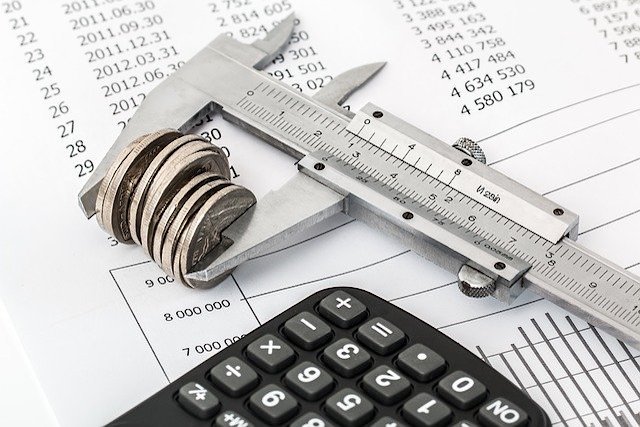Do you have debts that you are struggling to manage? If you’re worried about your future, even the act of deciding on the best course of action can be incredibly stressful and difficult. Nobody’s circumstances are the same, so it is important that you find a solution that is right for you.
An Individual Voluntary Arrangement (or IVA as it is more commonly known) is one such option. It is a formal and legally-binding agreement between you and your creditors that you will pay back your debts over a certain period, so it is essential that you comply with the guidelines at all times.
The question is, how does an IVA work, and, more importantly, is it relevant for your current situation? While there are many positives to this course of action, it can be an expensive procedure and there are certain risks involved. As such, it is essential that you seek independent advice at the earliest possible opportunity so you have the best possible chance of improving your circumstances.
In this guide, we’ll break down everything you could ever need to know about IVAs — from the qualifications, to the steps involved, along with the potential impact it could have not only on your finances but also on your personal and professional lives. Read on to see if an IVA could be your first step towards financial freedom.
What is an IVA?
An IVA is a legally binding agreement in which you commit to repaying creditors over a set period of time. While the duration of an IVA will vary from person to person, it is usually around five years. The purpose of this arrangement is to help individuals struggling with unsecured debts, like personal loans, credit card debt, overdue taxes, etc.
Unlike some alternatives, like bankruptcy, an IVA allows you to retain some semblance of control; particularly over certain assets. It can also offer more privacy regarding your current circumstance compared to bankruptcy, where your status would be advertised in The Gazette. However, while it may appear to be a no-lose situation, it’s important to remember that an Individual Voluntary Arrangement does involve strict adherence to the repayment terms.
It’s also important to note that IVAs are available to people in England, Wales, and Northern Ireland. If you’re based in Scotland, an IVA is not a viable option. However, you may be eligible for a Protected Trust Deed, which bears similarities in scope and intent.
Do I Qualify for an IVA?
Acceptance for an IVA is, by no means, guaranteed. There are certain criteria that you must meet. For example, you are required to have at least three different creditors, and owe a significant sum of money to even qualify — typically this figure stands at over £15,000.
While not a legal requirement, these criteria are considered a standard ‘rule of thumb’ that are widely followed across the industry to determine how likely an arrangement such as this is to be accepted.
There are some other qualifying benchmarks that should be met before an IVA can be initiated, including:
- Minimum Return: In most cases, the amount creditors actually receive through the IVA will need to be above a certain threshold. This amount is often quoted at around 15% of the total debt owed.
- Beneficial: IVAs must be more beneficial to the creditors than bankruptcy. This means your creditors have to be likely to receive a better outcome than they would through bankruptcy.
If an IVA is ultimately not suitable to you, there are alternatives to explore. This is why it is vital that you seek immediate advice from an independent expert. A specialist will be able to gain a thorough understanding of your exact situation, and can work closely with you to find the best possible course of action to take going forwards.
How Do IVAs Work?
In order to initiate an IVA, you’ll first need the support of a licensed insolvency practitioner (IP). The role of an IP will be to analyse your finances before drafting a detailed proposal for all of your creditors. They will then oversee the completion of the remainder of the process on your behalf.

Once an IP is on board, there are a number of steps. This process includes:
- Statement of Affairs: The IP will collate financial details, including assets, income, expenditure, etc. and place them into a formal Statement of Affairs.
- Payment Terms Considered: The actual payment plan will be worked out with your IP. It usually consists of either monthly payments, a lump sum, or a combination of the two. It is essential that your payments are reasonably affordable.
- Proposal Submission: The proposal will be submitted to your creditors. This will usually coincide with an application for an Interim Order which, if passed, halts creditor action.
- Creditor Meeting: Creditors will review the proposal that has been submitted to them, which may lead to some suggested changes. For an IVA to be passed, there will need to be agreement from at least 75% (in value) of the total debt.
- Acceptance and Repayment: Once accepted, the debtor will be expected to make regular payments as laid out in the pre-agreed plan. The IP will oversee this, as supervisor. It is their responsibility to ensure compliance and distribute gathered funds to creditors.
- Inability to Pay?: If you are unable to keep up with your obligations, creditors may be liable to push for bankruptcy. You can also find yourself liable for any fees creditors have paid to your IP.
IVA Pros and Cons
There are a number of pros and cons that can be attributed to an Individual Voluntary Arrangement. These include:
PROs:
- IVAs are legally binding. This is vital to preventing creditors from pursuing any further action.
- Payment plans can be flexible, based around your actual income and what you can afford.
- Certain assets can be retained to ensure a life is not entirely upturned and uprooted (home, personal vehicle, etc.).
- Remaining unsecured debt will be discharged upon completion.
CONs:
- You are committed to strict financial obligations for up to five years.
- There are costs associated with the setup and continued management of the IVA.
- An IVA may require you to use your personal pension to repay as this will count as income.
- An IVA could prevent you from working if you are in key professions such as accountancy or the legal sphere.
Any failure to comply with the IVA can lead to bankruptcy.
Bankruptcy vs. IVA: Which Is Right for You?
Deciding between bankruptcy vs IVA should depend on your level of debt, assets, and long-term goals for the future. Bankruptcy is usually quicker, lasting only around a year to eliminate most debts — though it may require selling significant assets and restricting job prospects. An IVA, meanwhile, allows you to keep vital assets while repaying over a longer period.
However, while an Individual Voluntary Arrangement may appear at first glance to be the best solution, there are still drawbacks that must be considered. Consulting a financial advisor can help you when determining which option will align best with your current financial situation and how your choice could impact various different elements of your life.

IVAs Impact on Personal Finances and Relationships
While IVAs represent, for many, a more stable method of recovering from a financial deficit, it does still carry with it potential consequences for your personal life, finances, and even your relationships. If you’re seriously weighing up bankruptcy vs IVA and are currently leaning towards the latter, you may wish to first consider the following questions:
Does an IVA Affect My Mortgage?
Yes, an IVA can affect your mortgage. This is because having an IVA in place will appear on your credit file, which may be seen as a red flag for a potential lender. If you already possess a mortgage, you may not be immediately affected; however your interest rates may increase due to a perceived greater financial risk.
Therefore, if you’re planning to either apply for a mortgage or remortgage, having an IVA on your record can make the approval process significantly more challenging. This will result in your options becoming much more limited.
For starters, mortgages factoring in an IVA will tend to have much higher rates of interest. You can also be required to put down a much larger deposit up front, for security purposes. Factors like this will be up to the discretion of your chosen lender.
How Does an IVA Affect My Credit Rating?
An Individual Voluntary Arrangement will have a serious knock-on effect to your credit rating. It will have to be recorded on your credit file for a period of up to six years from its start date. The reason for this is to inform creditors of your existing agreement — in turn impacting your credit rating.
During this multi-year period, obtaining any new lines of credit, such as credit cards or loans, will be a major challenge. And if you are able to convince a lender, you can expect much higher interest rates if approved.
Once the IVA period comes to an end, even after the arrangement is removed from your record, it can still take some time to fully rebuild your credit score.

Does an IVA Affect My Partner?
An IVA will only directly impact the individual entering into the arrangement. However, if you share any joint debts with a partner (mortgages, loans, etc.) then your partner will be seen as being liable.
This is what makes it so integral that you always consider how entering into an IVA can impact your loved ones before jumping the gun and making a snap decision.
Business Considerations: Directors and Business Accounts in an IVA
If you’re a company director, the act of entering an IVA can also have implications on your working life. Therefore, it falls on you to do ample research and ensure you have the answer not only to ‘how does an IVA work?’, but how it will impact your company:
Can I Be a Director with an IVA?
As a general rule, you are able to remain a director while in an IVA. However, this isn’t always the case and can depend on the regulations of your company and the industry you operate in. This is most apparent in regulated industries, such as finance or legal, where personal insolvency can impact somebody’s ability to do their job properly.
If you’re weighing up your options, before entering into an IVA, we recommend you check your company’s rules, as any failure to comply could result in a disqualification.
If you’re a director with an IVA, or one who thinks personal insolvency may be coming, you should consult with an insolvency practitioner as soon as possible. They will be able to discuss the process with you, and ensure that you’re 100% aware of any and all restrictions or causes that may apply to somebody in your position.
Using a Business Bank Account with an IVA
Entering into an IVA may result in restrictions on how you interact with your business bank account. This is a result of your bank potentially becoming cautious about offering you any credit-related services if you’re already involved in a financial arrangement. This can mean that your access to the likes of overdrafts or business credit cards is withdrawn.
In some cases, you may even be asked to switch to a different, more basic, bank account. It’s important that you engage with an insolvency expert, as well as your bank, regarding your IVA. This can help maintain the relationship between you and the bank — which could do wonders to ensure your firm is able to continue to operate as planned.
What Happens at the End of an IVA?
Reaching the end of your IVA period marks a significant milestone in your journey towards financial recovery. Once the final payment has been made, your obligation to repay the debts outlined in the arrangement comes to an official end. This means that you are able to look forward to a renewed, fresh start.
However, there are still some things you need to keep in mind:
What Happens When an IVA Ends?
Once your Individual Voluntary Arrangement has come to an end, any remaining unsecured debt included within your arrangement will be written off. Your insolvency practitioner will issue a completion certificate. This document confirms that you’ve met all obligations. Your IP will also update the Individual Insolvency Register to ensure that these records reflect your new status.
With the IVA completed, your path will lead down a new road, that of restoring financial stability and rebuilding credit.

While the completion of the arrangement will gradually improve your credit, there are certain measures you can take to strengthen both your credit score and your financial recovery after the IVA is over:
Financial Recovery and Credit Rebuilding Post-IVA.
The act of focussing on recovering and restoring financial stability in the wake of the end of an IVA is essential. This is because, while IVA completion will relieve you of your personal debt obligations, it does not miraculously turn your credit around.
Having a strategic approach to managing your finances can help you when it comes to regaining your financial confidence, while working towards building a healthier credit score. Here are a selection of practical steps to support your personal financial recovery post-IVA:
- Create a budget and track income/expenses
- Establish a small emergency fund for unexpected costs
- Consider using secured or low-limit credit cards for a while, to help you rebuild your credit without falling into bad habits.
- Avoid taking on any significant debts. Focus only on manageable credit to gradually improve your creditworthiness.
- Regularly monitor your credit report to ensure accurate reporting and identify any possible errors that may impact your score.
- Notify any relevant financial institutions about your IVAs completion.
The process of rebuilding your credit and financial stability after an Individual Voluntary Arrangement will take both time and patience. By taking small steps to begin with you’ll be able to gradually improve your credit and regain financial independence — setting a strong foundation you can build on for future financial health.
Contact Inquesta for Expert IVA Guidance
Are you struggling financially? While an IVA does provide relief, it is also a period of challenge. While you are heading towards freeing yourself from your debts, you are faced with new responsibilities. By taking the time to understand your IVA fully, from its benefits to its potential drawbacks, and by making smart steps in the right direction towards recovery, you can put yourself on the road towards a financially stable and secure future.
When you’re staring down the barrel of serious financial issues, you can rely on Inquesta to help. We are the experts when it comes to corporate and personal insolvency and have amassed decades of experience in helping people just like you turn their finances around.
We will take the time to thoroughly understand your individual circumstances, before recommending what we believe is the best course of action for you. We are a licensed and well-respected insolvency practitioner, so we can guide you through the entire process from start to finish. This gives you peace of mind that everything is being taken care of.
For expert guidance on your IVA, or to explore what other options might suit your situation, reach out to Inquesta’s team of insolvency specialists today. Our experience and dedication when it comes to helping our clients navigate the most complex of financial decisions makes us ideally positioned to offer tailored advice aimed to help you every single step of the way.
[/fusion_text][/fusion_builder_column][/fusion_builder_row][/fusion_builder_container]


